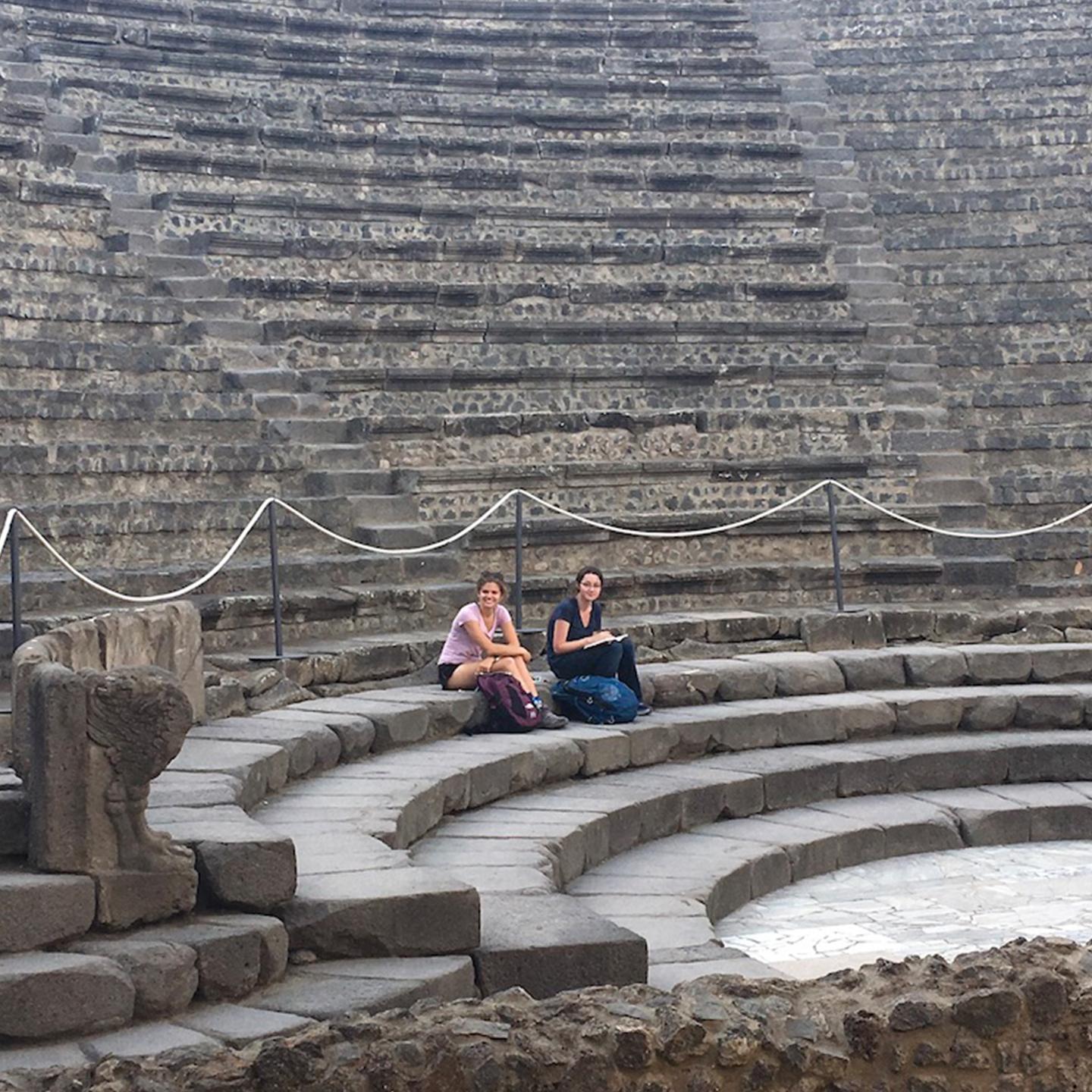Prepared for Anything
The study of classics enriches many other subjects, and is considered an excellent foundation for postgraduate studies, including medicine and law. We are especially interested in preparing Latin majors to teach Latin in high school. In addition to these fields, and to postgraduate study in classics, recent graduates have continued their education in archaeology, history, law, library science, genetics and medicine. Recent graduates who have entered the workforce directly are employed in teaching, information technology, business management, computer programming, musical performance, art valuation, and government service.
Skills You Will Gain as a Classical Studies Major
- Understanding/interpreting other cultures
- Clarifying others’ thoughts and ideas
- Analyzing impact of events on society
- Decision-making
- Reading for tone, attitude, and hidden meaning
- Developing sensitivity to cultural viewpoints
- Seeing relationships between factors
- Knowledge of how societies cope with change
Courses
Our courses are discussion based, providing for close and free interaction between teachers and students. You will share in the creation of an academic experience where learning, the testing of ideas and the exploring of texts and cultures are done actively and with personal engagement.
In our language courses, this may go so far as to have you take part in a performance — perhaps of something you have helped write — done in Greek or Latin. You and your classmates will be encouraged to appreciate the languages as languages and to make them live.

Experiential Learning
Many of our courses involve hands-on activities, field trips, and community-based learning. These experiences give students opportunities to apply what they are learning about ancient languages and cultures to the world around them and to make positive contributions to our community through volunteer service.

Community
Becoming a classics major or minor means joining a diverse community of scholars interested in the ancient Mediterranean world. Because we are a relatively small department, there are ample opportunities for students to get to know each other and to interact with faculty members outside the classroom.
The Humanities Building’s 4th floor, which we share with the Department of Philosophy, offers hallway nooks as well as the Classics/Philosophy Study and Library as spaces for students to study, collaborate, write, or simply rest between classes.

Resources
A number of resources are available to broaden students’ knowledge of the ancient Mediterranean world.
Ancient World Gallery
The Ancient World Gallery was founded in 1979 by Stuart Wheeler as a teaching collection within the department, with antiquities that had previously been displayed in the museum of Richmond College, before the move to the present campus in 1914. These antiquities included the mummy and coffin of Ti Ameny Net and other Egyptian items brought to Richmond by Dr. J.L.M. Curry in 1876.
Classics/Philosophy Study and Library
With its den-quality furnishings, the Classics/Philosophy Study and Library (Humanities Building 409) is a place where you will feel at home reading, preparing for class, or talking with classmates and teachers. The collection of texts, translations, scholarly books, and wall-to-wall floor-to-ceiling oak shelves have been funded by the generous donations of classical studies alumni.
Howland Summer Grant
Classics students are eligible for the Gertrude Howland Summer Grant, to support their participation in an archaeological field school or summer academic program in the Mediterranean region.
Partnerships
The department has partnerships with professional organizations such as the Classical Association of Virginia, Archaeological Institute of America (AIA), Classical Association of the Middle West and South, and regularly hosts speakers from AIA Richmond.

Careers & Outcomes
The study of classics enriches many other subjects and is considered an excellent foundation for postgraduate studies, including medicine and law. We are especially interested in preparing Latin majors to teach Latin in high school. In addition to these fields and postgraduate study in classics, recent graduates have continued their education in archaeology, history, law, library science, genetics, and medicine. Recent graduates who have entered the workforce directly are employed in teaching, information technology, business management, computer programming, musical performance, art valuation, and government service.
